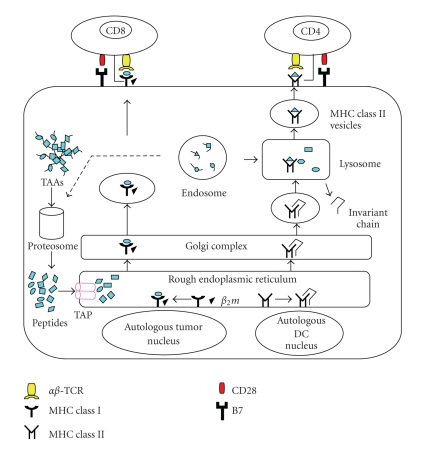Figure 1.
Fusions of autologous DCs and autologous tumor cells. The DCs/tumor fusion cells express MHC class I and class II and costimulatory molecules as well as tumor-associated antigens. The fusions are able to process tumor-derived peptides and MHC class I peptides derived from DCs. They form MHC class I-peptide complexes, in the endoplasmic reticulum, which are transported to the surface and presented to CD8+ T cells. Similarly, the fusion cells can also synthesize MHC class II peptides derived from DCs in the endoplasmic reticulum, which are transported to the cytoplasm where MHC class II-peptide complexes are assembled with tumor-derived peptides. These complexes are presented to CD4+ T cells, which are important for efficient CTL induction.

